calsfoundation@cals.org
Bland (Saline County)
Bland is an unincorporated populated place in Union Township of Saline County. It is located near the intersection of Arkansas Highway 298 and Steele Bridge Road, approximately ten miles northwest of Benton (Saline County) and seven miles southeast of Paron (Saline County).
A post office was established in 1846 and named in honor of Abel Bland, who along with the Moses and Jesse Bland families, settled in Union Township by 1833. Other early settlers were Aaron Bolt, Samuel T. Henderson, Jesse James, Andrew McAllester, and Hugh Rowan, all residing in the area by 1840.
After the first settlers arrived, and for decades afterward, farming, hunting, and trapping were the primary endeavors. While there were a few slave-owning yeoman farmers, most were small family operations, raising just enough for family and livestock. Andrew McAllester arrived from South Carolina and settled in Union Township in 1826, where he engaged in farming. He served in the First Arkansas Mounted Volunteers during the Indian Wars of 1836, on the western Arkansas border, and at Forts Coffee, Gibson, and Towson. On returning, in addition to farming, he was employed in the search for mineral deposits, at which he was fairly successful. During the Civil War, he was a pro-Union man and provided assistance to the Federal army in 1863 as an informant and scout. A son, John F. McAllester, served in the Eleventh Arkansas Infantry, a Confederate unit, and was captured at Island 10, spending time as a prisoner of war at Camp Douglas, Illinois.
The Reverend Jesse Bland, one of the pioneer Baptist preachers in Saline County, settled in the community in 1833. Nicknamed “Old Hardside,” he was known as an eloquent speaker who could mesmerize congregations for hours. Through his leadership, as well as others, the Union Baptist Church was organized in his home in 1830. By 1835, a crude log structure was built beside Old Union Cemetery as the first church building. The cemetery is said to have been started in 1830 when Aaron Bolt set aside land for burial of his slaves. Bland was its first preacher, followed by Samuel T. Henderson in 1834, Aaron Bolt in 1840, and John C. Henderson in 1868. The church is still an active congregation in the twenty-first century known as Old Union Baptist Church.
Another notable resident, Asher Bagley, was one of only two Revolutionary War soldiers to settle in Saline County. He served as a private in the First New Jersey Regiment, enlisting on January 2, 1782, but seeing no combat. He served the last year of the war at Morristown, New Jersey, and later in the Hudson Highlands before being released from duty at the signing of the Treaty of Paris in 1783. Bagley died on November 16, 1840, and is buried in Old Union Cemetery.
The Reverend Samuel T. Henderson and his family had a large influence on the community in their establishment of Baptist congregations. The elder Henderson, the son-in-law of Abel Bland, settled there in 1833. He started Spring Creek Baptist Church, the first Baptist church in Benton. He later became a prominent merchant and miller in that city. His sons John C., Mazarine Jerome, and Samuel M. were in Confederate service during the Civil War and were active farmers and merchants in Benton. John C. Henderson followed in his father’s and grandfather Bland’s footsteps, pastoring the Union Church (Old Union Church) in the Bland community in 1868.
Jesse James came to Saline County with his father, Honor James, in the 1830s, settling on Lees Creek, where he farmed for twenty-five years. He then ran a boarding house on the stage route from Hot Springs (Garland County). He was shot and killed in a hunting accident in 1874.
Aaron Bolt arrived in Saline County by 1836 and lived in Bland by 1853. He was one of the early ordained Baptist ministers in Saline County, preaching in many of the wilderness churches, including Union Baptist Church. He also assisted with the first ordination of one of Arkansas’s first Black Baptist preachers, Wilson Brown, who was enslaved in Little Rock (Pulaski County).
After improvement of local roads, the post office was closed in 1928, with mail coming from other post offices. The region remains sparsely settled in the twenty-first century, with some residents active as farmers or employed in Little Rock, Benton, or other nearby cities. The only industry associated with the area is that of timber companies.
For additional information:
“Aaron Bolt, 1796–1861.” The Saline 2 (December 1987):14–15.
“Asher Bagley, Revolutionary War Pension.” The Saline 1 (April 1986): 64–66.
Benton Courier, Centennial Number, March 25, 1937.
Billingsley, Carolyn Earle. “Early Saline County Baptists.” The Saline 17 (April 2002): 43–47.
———. “The McAllesters of Saline County, Arkansas.” The Saline 3 (September 1988): 126–130.
Blackburn, Gail. “Some Saline County Lodge Records.” The Saline 7 (September 1992): 122–124.
Lackie, Dewayne. “Mazarine Jerome Henderson.” The Saline 13 (September 1998): 85.
“Mazarine Jerome Henderson.” The Saline 4 (September 1989): 115–116.
McCool, Joyce. “The Henderson Family.” The Saline 13 (April 1998): 35–37.
Anthony Rushing
Benton, Arkansas
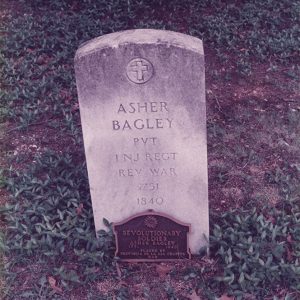
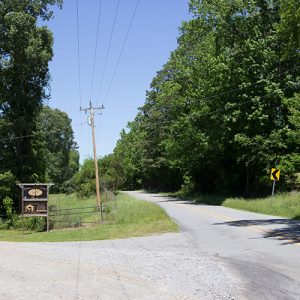
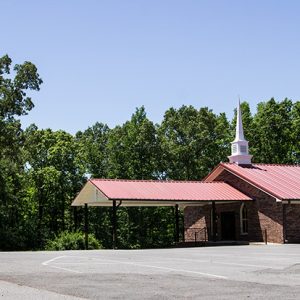
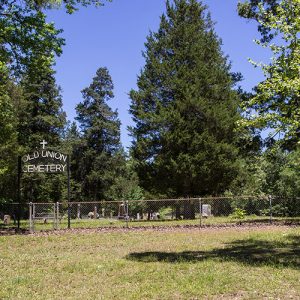
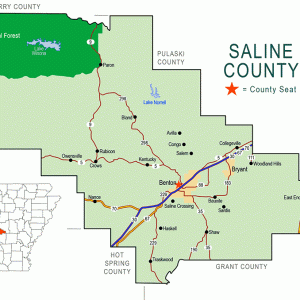




There is no mention in this report of the common name for the Bland community: Kentucky Settlement. The migration of about forty families from the Cynthiana, Kentucky, region in 1837 was a major factor. Key families included those of younger brothers of Gen. Zachary Taylor, plus Mason, McGregor/McGrew, and others. (Taylor relocated the Western Army headquarters of the U.S. from Baton Rouge, LA, to Fort Smith, AR, in 1935.)
Among the limited necessities carried in the move from northeastern Kentucky, several families’ still operations arrived intact, ready for the first crops of rye, millet, barley, and corn to produce Kentucky sipping whiskey.
The settlement remained almost a static mountain community until World War II, when more than 90% of the families were recruited for defense industries. After that, Mike and Vannie Taylor were possibly the only holdouts, with their bachelor son, Dewey. The last community reunion was the first week of July 1947, with between 750 and 900 total attendance, traveling from their new homes in more than twenty states.
Beginning with the Civil War, the settlement always had a high percentage of young men and women serving in uniform. (Mike Taylor became disabled in the Spanish-American War.)
The Old Union Cemetery is very well kept for being so far in the sticks! There’s a lot of history there. I found it hard to believe that there was a Revolutionary War soldier buried there. The place is very well worth investigating.